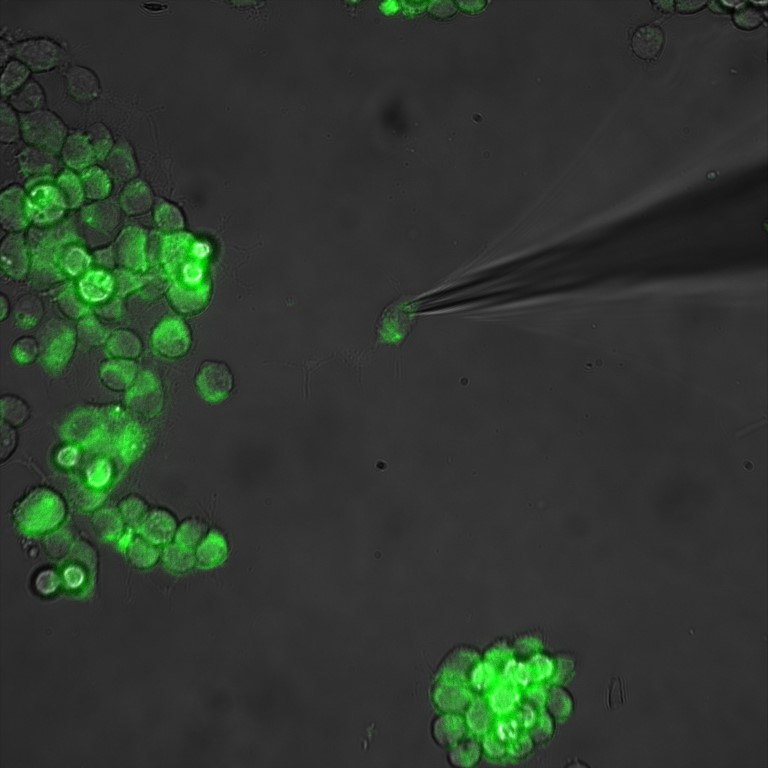

Using optogenetics, cells (here neuronal cell lines) can be individually changed using light.
LZH
The field of optogenetics wants to open up new applications in biomedicine, biotechnology and substance development using light-controlled proteins and bio molecules. For this purpose, technical, biological and medical competencies shall be combined.
Breaking new ground
„Since the field of optogenetics is so new, all partners need to think beyond their present spectrum of existing contacts and ideas,“ says Dr. Dag Heinemann, organizer of the innovation network and Head of the Biophotonics Group at the LZH. “In the Innovation Network Optogenetics, we will be bringing together all the important players from optics and genetic engineering, in order to able to break new ground and to lay the cornerstone for new cooperative efforts.”
This approach is especially interesting for small and medium sized enterprises (SMEs). They will have the chance to get together with partners from industry and science, and to open new business fields and sales markets.
The LZH sees itself as a sort of link between these parties. “We have been working together with partners from both fields. As a research institute, we have both experience in cooperating with SMEs and in performing technology transfer,” summarizes Dr. Heinemann.
More information on the event will be available in the near future. If you are interested, you can contact Dr. Heinemann at optogenetik@lzh.de. The forum is supported by PhotonicNet, BioRegioN and hannoverimpuls.
The Innovation Network Optogenetics is supported by the initiative „Innovation Forum SMEs” by the German Federal Ministry of Education and Research (BMBF).












